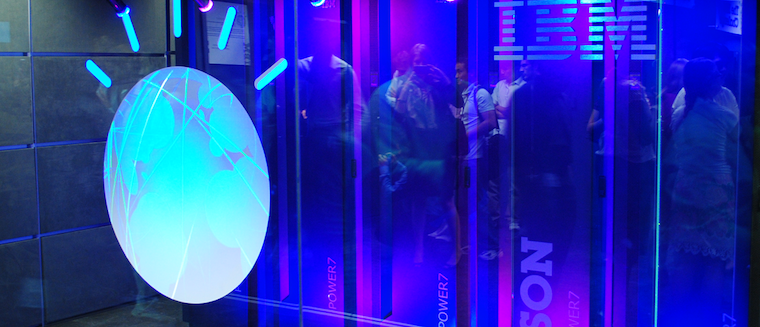Steve King, a partner in Emergent Research and a regular contributor to SmallBusiness.com rounds up, and breaks down, some recent news about machine learning and extreme data crunching designed to find hidden patterns that may provide business insight and advice.

Intuit's expands use of machine learning into smart machines, business advice
ZDNet's recent article, “Intuit Plans Big Digital Expansion Into Small Business Markets With Apps and Big Data,” covers the use of machine learning and big data to develop algorithms and “smart machines” that provide business advice.
Key quote:
“Intuit is planning a major expansion of its online Quickbooks business group into a machine learning advice and services platform for creating, managing, and operating all types of small businesses. Intuit has extensive data from millions of small businesses due to their enormous base of cloud customers.”
This provides Intuit a treasure trove of data to develop machine learning based advisory services.
Machine learning to help business managers make faster, more efficient decisions
Intuit's not the only company working on these types of services. The Big 3 strategy consulting firm McKinsey has an entire division–McKinsey Solutions–devoted to using big data and machine learning to help their clients make faster and more effective business decisions. And, of course, IBM is betting a big part of their future on Watson, a generalized machine learning system that they are using to provide advice in a wide variety of business and scientific fields.
In the long run machines may even take on high level activities like corporate strategy. The Harvard Business Review's Designing the Machines That Will Design Strategy suggests one day there may even be a chief strategy robot, which they call the integrated strategy machine.
Key quote:
An integrated strategy machine is the collection of resources, both technological and human, that act in concert to develop and execute business strategies.
The good news is they continue to see a role for humans–at least for awhile. Human beings are still unique in our capacity to think outside the immediate scope of a task or a problem and to deal with ambiguity.
Machines are good at executing a well-defined task or solving a well-defined problem, but they can't think beyond the specified context. Nor can they pose new questions, invent answers beyond what's being asked, or reframe or connect the problem to a different challenge they've previously faced.

The Rise of the Strategy Machines
“The Rise of the Strategy Machines,” from the MIT Sloan Management Review, covers much of the same ground as the HBR article. They too see a continuing role for humans.
Key quote:
Big-picture thinking is one capability at which humans are still–and will continue to be for some time–better than computers…There is a level of sense-making that only a human strategist is capable of (at least for now).
It seems pretty clear that there are tasks where machines are better than humans. There are also tasks where humans are better than machines. But in most cases humans using machines are the best solution
So I agree with Star Trek's Spock, who said:
“Computers make excellent and efficient servants,
but I have no wish to serve under them.”
Star Trek, Season 2, Episode 24
“The Ultimate Computer,” 1968
Disclosure | Intuit is an Emergent Research client.
VIA | A version of this article first appeared in Emergent Research's Small Business Labs.
Thinkstock, Wikimedia Commons


No comments:
Post a Comment